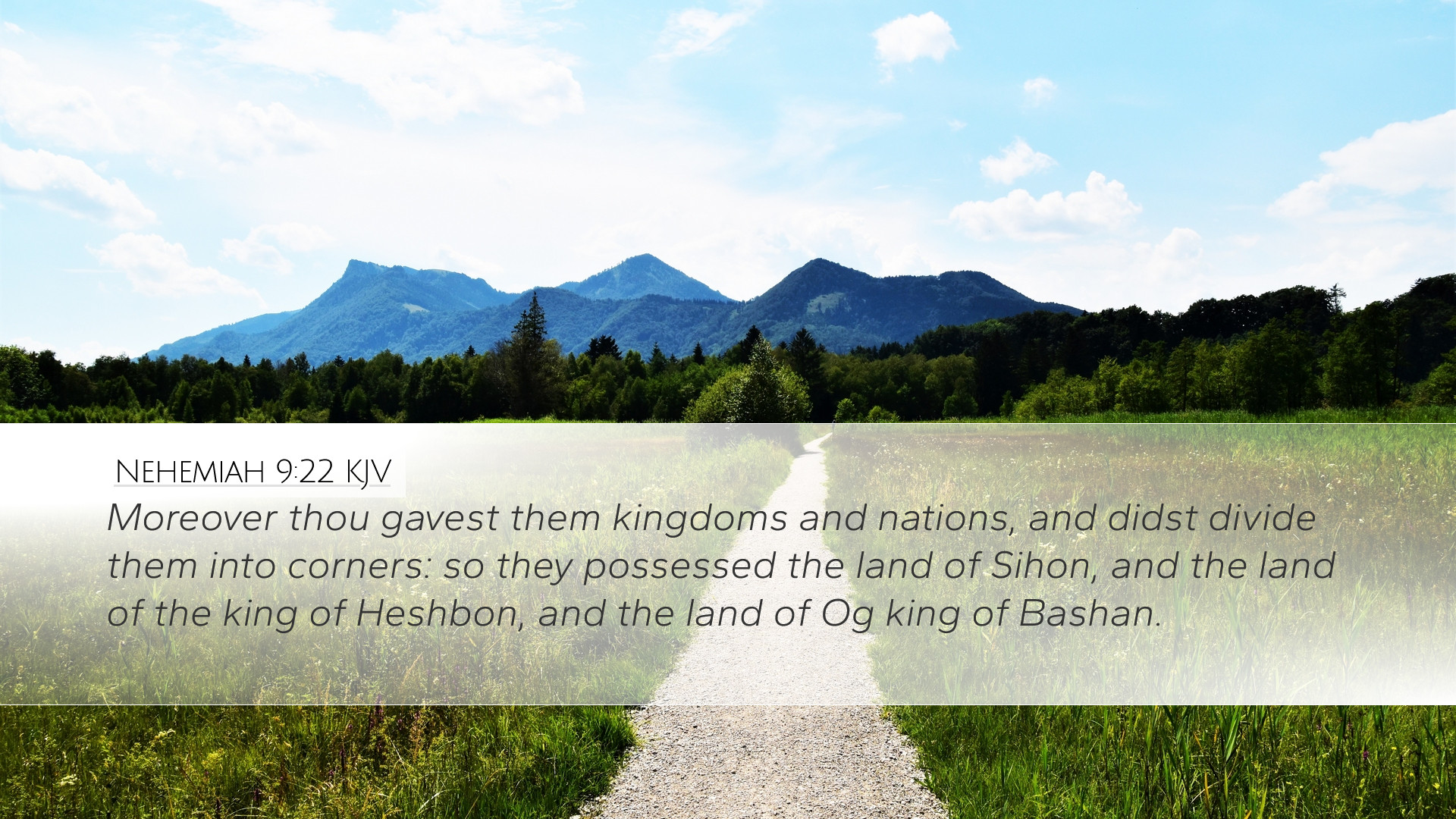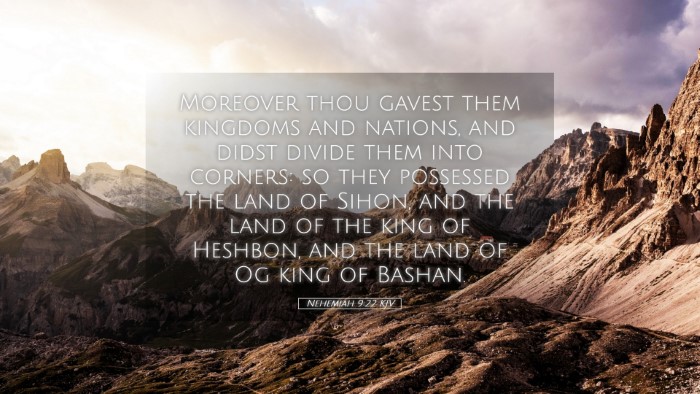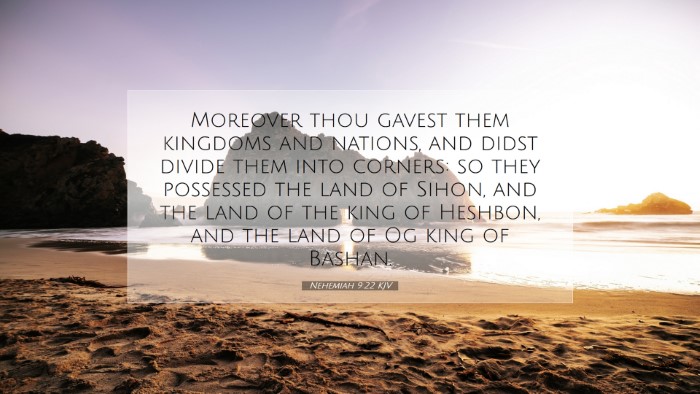Commentary on Nehemiah 9:22
Verse Text: "Moreover, you gave them kingdoms and nations, and divided them into districts; so they took possession of the land of Sihon and the land of the king of Heshbon, and the land of Og king of Bashan."
Introduction
The verse of Nehemiah 9:22 encapsulates a moment of worshipful reflection and recognition of God's providential sovereignty in granting Israel the Promised Land. As Nehemiah recounts the historical acts of God towards His people, he emphasizes His covenant faithfulness and the blessings bestowed upon them. The insights from Matthew Henry, Albert Barnes, and Adam Clarke highlight various theological and practical implications of this scripture.
Historical Context
Nehemiah stands as a pivotal book detailing the post-exilic return of the Israelites to Jerusalem. It narrates the rebuilding of the city walls and restoration of the community's spiritual life. This chapter features a lengthy prayer of remembrance where the Levites recount Israel's history with God, emphasizing His mercy and providential guidance.
Matters of Divine Sovereignty
According to Matthew Henry, this verse is illustrative of God’s comprehensive dominion over the affairs of nations and His specific intervention in Israel's history. The reference to “kingdoms and nations” signifies not merely territorial grants but also God’s active role as the ultimate ruler who orchestrates history to fulfill His divine purposes.
The Significance of Conquest
Albert Barnes notes that God’s granting of land to His people signifies His intent to establish them as a distinct nation under His covenant. The phrase “you gave” emphasizes that this was an act of divine grace and not merely the results of military prowess. The lands mentioned, notably Sihon and Og, represent significant victories that were not merely military successes but acts of God paving the way for fulfilling His promises to Abraham, Isaac, and Jacob.
Theological Insights
- God's Faithfulness: This verse serves as a reminder of God’s unchanging nature and His faithfulness in fulfilling promises. Adam Clarke asserts that the Lord's grants to Israel reflect specific fulfillment of prophecy and divine assurance of their inheritance.
- The Nature of Blessing: The conferred lands were not merely possessions but blessings that served to solidify Israel's identity as God's chosen people. Such blessings necessitated a corresponding response of gratitude and obedience from them.
Applications for Today
The historical and theological contexts inform several contemporary applications for pastors, theologians, and students of the Word:
- Recognition of Divine Blessings: Just as Israel was reminded of their heritage and the gifts of God, modern believers are encouraged to recognize and reflect on the blessings they have received through Christ.
- Understanding Sovereignty: This verse invites deeper contemplation on God’s sovereignty in history and personal lives, urging individuals to trust in His plans.
- Community Identity: The concept of being a ‘chosen people’ applies to the Church today, reinforcing the call to live as a community focusing on God's values and mission.
Conclusion
Nehemiah 9:22 presents a profound insight into God’s providence and faithfulness in Israel’s history. By recalling the gift of land and the victories over their enemies, the Israelites are reminded of God’s continuous guidance and support. For contemporary readers, this verse stands as a testament to God's unwavering promises and invites a response of gratitude and trust in His sovereign will.
In summary, as emphasized by Henry, Barnes, and Clarke, Nehemiah 9:22 encourages deeper appreciation for God’s active involvement in human history and personal faith journeys, fostering a spirit of remembrance and worship among His people.


